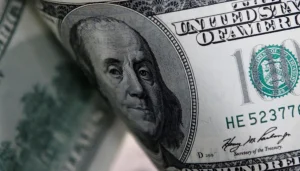The UAE Fatwa Council, in cooperation with the General Authority of Islamic Affairs and Endowments and Zakat, announced the zakat threshold for dates for the year 2025, equivalent to 541 kilograms of dried dates.
The council confirmed that zakat on dates is a unanimously agreed obligation if the total harvest reaches the nisab (minimum amount), and it is to be paid at harvest time, citing the Quranic verse: “…Eat of its fruit when it yields and give its due on the day of its harvest.” The nisab is calculated based on the dried dates, not before drying. The zakat on dates is to be distributed to the eight categories mentioned by Allah in the Quran: “Indeed, the alms are for the poor and the needy and those employed to collect [zakah] and those whose hearts are to be reconciled and for freeing captives and those in debt and for the cause of Allah and the [stranded] traveler – an obligation [imposed] by Allah. And Allah is Knowing and Wise.”
The council specified the zakat rate for those who pay it if the nisab is reached. It explained that date palms irrigated by a natural water source that does not cost the owner require a zakat of one-tenth (10%) of the harvest. For date palms irrigated at a cost, the zakat is half of one-tenth (5%), based on the hadith of Ibn Umar, may Allah be pleased with him, who reported the Prophet ﷺ said: “For what is irrigated by rain and natural springs or is dry land, the zakat is one-tenth, and what is irrigated by manual irrigation is half of one-tenth.”
The council also stated that zakat on dates can be paid from the dates themselves or their monetary value, and it is permissible to pay it in cash. However, paying zakat on fresh dates is not valid. If the farmer sells the fresh dates, zakat is paid on their value according to the consensus of scholars. To facilitate farmers, the zakat is calculated only on the remaining harvest after drying and sorting, excluding what the owner consumes or distributes before harvest. Zakat is not obligatory on what is consumed, gifted, or donated unless it exceeds one-third of the harvest.
The council called on farm owners to adhere to the laws and regulations governing the payment of date zakat and to comply with the nisab amount set by the UAE Fatwa Council, emphasizing the importance of paying zakat through official specialized and accredited entities in the country. Farmers can also benefit from the services of the General Authority of Islamic Affairs and Endowments and Zakat in calculating and how to pay date zakat.













Recommended for you
Exhibition City Completes About 80% of Preparations for the Damascus International Fair Launch
Talib Al-Rifai Chronicles Kuwaiti Art Heritage in "Doukhi.. Tasaseem Al-Saba"
Unified Admission Applications Start Tuesday with 640 Students to be Accepted in Medicine
Al-Jaghbeer: The Industrial Sector Leads Economic Growth
Ministry of Media Announces the 10th Edition of 'Media Oasis'
Love at First Sight.. Karim Abdel Aziz and Heidi: A Love That Began with a Family Gathering and 20 Years of Marriage